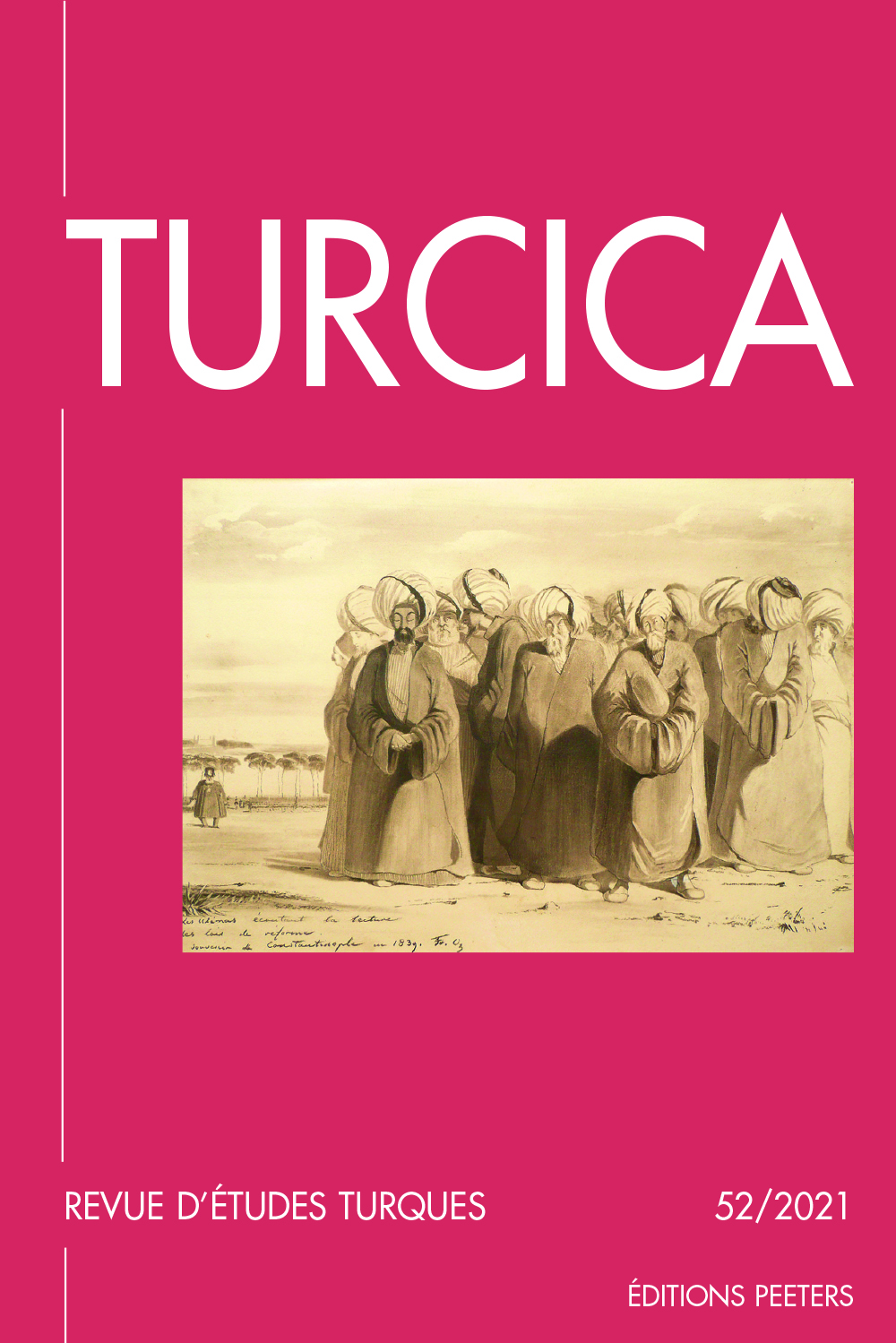 previous article in this issue previous article in this issue | next article in this issue  |

Preview first page |
Document Details : Title: L'Afrique du Sud dans la politique 'panislamique' de l'empire ottoman Author(s): GERMAIN, Éric Journal: Turcica Volume: 31 Date: 1999 Pages: 109-148 DOI: 10.2143/TURC.31.0.2004190 Abstract : Les relations entre l’Empire ottoman et la communauté musulmane sud-africaine débutèrent en 1862 par l’envoi d’un ‘âlim, salarié par la Sublime Porte, ayant pour mission d’enseigner les sciences religieuses et de guider la communauté du Cap. Il s’agissait de l’une des toutes premières expressions d’une politique califale qui fut poursuivie et amplifiée par le sultan Abdul Hamid II et dont nous trouvons de nombreux témoignages en Afrique du Sud. À la fin du siècle dernier, la diplomatie ottomane délaissa la communauté des Malais du Cap pour s’intéresser aux groupes de marchands indiens musulmans récemment établis dans les principales villes d’Afrique australe. La région semble ainsi avoir été intégrée dans le cadre plus général d’une propagande destinée aux populations musulmanes du sous-continent indien. L’idéologie panislamique trouva en Afrique du Sud une expression répondant aux préoccupations d’une minorité musulmane vivant dans une société politiquement et culturellement dominée par des chrétiens. South Africa in the 'panislamic' politics of the Ottoman Empire The connection between the Ottoman Empire and the South African Muslim population opened in 1862 with the sending of an ‘âlim to teach and guide the Cape community. It was one of the very first utterances of a caliphate policy which was pursued and developed to wider areas under the reign of Sultan Abdul Hamid II. From the last decade of the nineteenth century, the Ottoman diplomacy took no further interest in the Malay community to rather focus on the Indian trader‚ group which had recently settled in all Southern African urban areas. It seems to illustrate the pragmatic integration of this community into a broader propaganda scheme targeting South Asian Muslim populations. The South African context challenged the panislamic ideology with the specific questions faced by a Muslim minority living in a society politically and culturally dominated by Christians. |
 |


